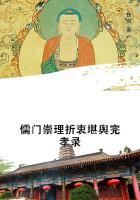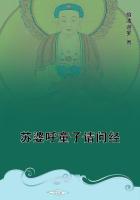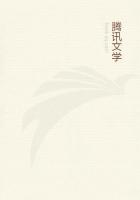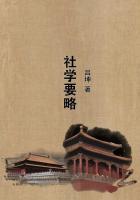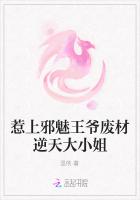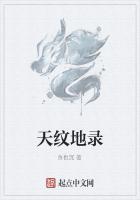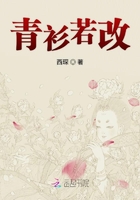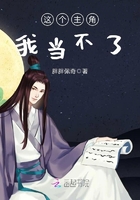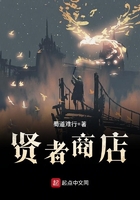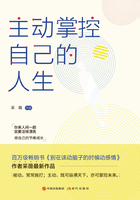At dinner that day the question of 'The Maiden Knight' was debated among the noises and silences of the band. Young Mrs. Leffers had brought the book to the table with her; she said she had not been able to lay it down before the last horn sounded; in fact she could have been seen reading it to her husband where he sat under the same shawl, the whole afternoon.
"Don't you think it's perfectly fascinating," she asked Mrs. Adding, with her petted mouth.
"Well," said the widow, doubtfully, "it's nearly a week since I read it, and I've had time to get over the glow."
"Oh, I could just read it forever!" the bride exclaimed.
"I like a book," said her husband, "that takes me out of myself. I don't want to think when I'm reading."
March was going to attack this ideal, but he reflected in time that Mr. Leffers had really stated his own motive in reading. He compromised.
"Well, I like the author to do my thinking for me."
"Yes," said the other, "that is what I mean."
"The question is whether 'The Maiden Knight' fellow does it," said Kenby, taking duck and pease from the steward at his shoulder.
"What my wife likes in it is to see what one woman can do and be single-handed," said March.
"No," his wife corrected him, "what a man thinks she can."
"I suppose," said Mr. Triscoe, unexpectedly, "that we're like the English in our habit of going off about a book like a train of powder."
"If you'll say a row of bricks," March assented, "I'll agree with you.
It's certainly Anglo-Saxon to fall over one another as we do, when we get going. It would be interesting to know just how much liking there is in the popularity of a given book."
"It's like the run of a song, isn't it?" Kenby suggested. "You can't stand either, when it reaches a given point."
He spoke to March and ignored Triscoe, who had hitherto ignored the rest of the table.
"It's very curious," March said. "The book or the song catches a mood, or feeds a craving, and when one passes or the other is glutted--"
"The discouraging part is," Triscoe put in, still limiting himself to the Marches, "that it's never a question of real taste. The things that go down with us are so crude, so coarsely spiced; they tickle such a vulgar palate--Now in France, for instance," he suggested.
"Well, I don't know," returned the editor. "After all, we eat a good deal of bread, and we drink more pure water than any other people. Even when we drink it iced, I fancy it isn't so bad as absinthe."
The young bride looked at him gratefully, but she said, "If we can't get ice-water in Europe, I don't know what Mr. Leffers will do," and the talk threatened to pass among the ladies into a comparison of American and European customs.
Burnamy could not bear to let it. "I don't pretend to be very well up in French literature," he began, "but I think such a book as 'The Maiden Knight' isn't such a bad piece of work; people are liking a pretty well-built story when they like it. Of course it's sentimental, and it begs the question a good deal; but it imagines something heroic in character, and it makes the reader imagine it too. The man who wrote that book may be a donkey half the time, but he's a genius the other half. By-and-by he'll do something--after he's come to see that his 'Maiden Knight' was a fool--that I believe even you won't be down on, Mr. March, if he paints a heroic type as powerfully as he does in this book."
He spoke with the authority of a journalist, and though he deferred to March in the end, he deferred with authority still. March liked him for coming to the defence of a young writer whom he had not himself learned to like yet. "Yes," he said, "if he has the power you say, and can keep it after he comes to his artistic consciousness!"
Mrs. Leffers, as if she thought things were going her way, smiled; Rose Adding listened with shining eyes expectantly fixed on March; his mother viewed his rapture with tender amusement. The steward was at Kenby's shoulder with the salad and his entreating "Bleace!" and Triscoe seemed to be questioning whether he should take any notice of Burnamy's general disagreement. He said at last: "I'm afraid we haven't the documents.
You don't seem to have cared much for French books, and I haven't read 'The Maiden Knight'." He added to March: "But I don't defend absinthe.
Ice-water is better. What I object to is our indiscriminate taste both for raw whiskey--and for milk-and-water."
No one took up the question again, and it was Kenby who spoke next.
"The doctor thinks, if this weather holds, that we shall be into Plymouth Wednesday morning. I always like to get a professional opinion on the ship's run."
In the evening, as Mrs. March was putting away in her portfolio the journal-letter which she was writing to send back from Plymouth to her children, Miss Triscoe drifted to the place where she sat at their table in the dining-room by a coincidence which they both respected as casual.
"We had quite a literary dinner," she remarked, hovering for a moment near the chair which she later sank into. "It must have made you feel very much at home. Or perhaps you're so tired of it at home that you don't talk about books."
"We always talk shop, in some form or other," said Mrs. March.
"My husband never tires of it. A good many of the contributors come to us, you know."
"It must be delightful," said the girl. She added as if she ought to excuse herself for neglecting an advantage that might have been hers if she had chosen, "I'm sorry one sees so little of the artistic and literary set. But New York is such a big place."
New York people seem to be very fond of it," said Mrs. March. "Those who have always lived there."
"We haven't always lived there," said the girl. " But I think one has a good time there--the best time a girl can have. It's all very well coming over for the summer; one has to spend the summer somewhere. Are you going out for a long time?"
"Only for the summer. First to Carlsbad."
"Oh, yes. I suppose we shall travel about through Germany, and then go to Paris. We always do; my father is very fond of it."
"You must know it very well," said Mrs. March, aimlessly.

